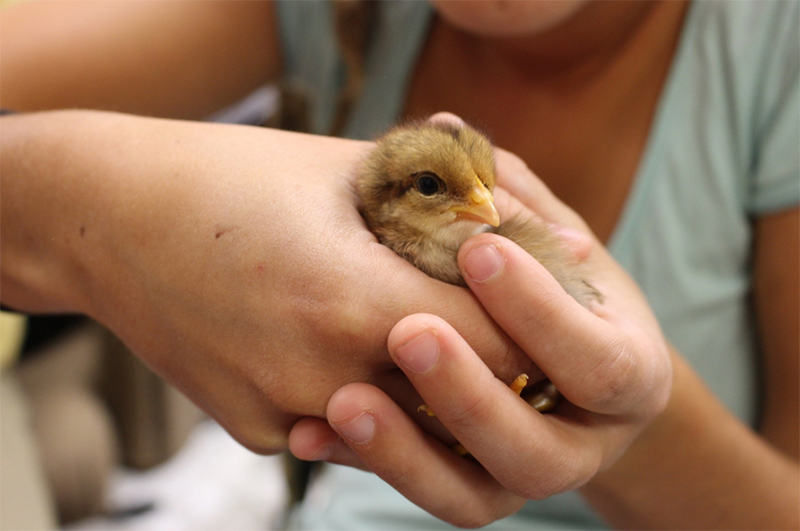
Snow-covered roads, wintry winds, and frigid temperatures may not sound like ideal farming conditions. But the Redlands Farm at St. Timothy School in Stevenson is proof that a little snow doesn’t slow down operations. In a greenhouse, on the school’s more than 160 acres of land, is a fully functional and sustainable farm complete with a multitude of lush greens, clucking chickens, and buzzing honeybees.
The boarding school’s partnership with Bon Appétit Management Company—a farm-to-fork, on-site food service that specializes in organically locally source food—is one of the driving forces behind the year-round harvesting. Redlands Farm provides 60 percent of the fresh vegetables, honey, eggs, and fruit to the school kitchen where the chefs cook everything from scratch to provide three meals a day.
Started in 1999, Bon Appétit’s program requires chefs to source at least 20 percent of their ingredients from small, owner-operated farms within 150 miles of the kitchen.
“Thanks to Redlands, our Farm to Fork scores are consistently two or three times that,” said Bon Appétit chef at St. Timothy’s Scott Richter. “They are just nailing it in terms of their quality and freshness. We are so lucky here. It’s every chef’s dream to be able to work with this kind of produce.”
Redlands Farm was started just two years ago when the St. Timothy class of 1965 wanted to fund an environmentally conscience project as a gift to the school. The head of school, Randy Stevens, had the idea of an on-site sustainable farm that would be dedicated to growing produce for the campus.
“A number of things just lined up,” Stevens said. “We really wanted to find a way to link health and wellness together, and bring all those pieces together to really shift the way that students look at their overall nutrition.”
As a living classroom, the farm has garnered the interest from students, who receive an afterschool activity credit for working on the farm. One student in particular, junior Ronelle Williams from Douglasville, Georgia, has fallen in love with the farm and has begun making connections between nutrition and sustainability.
“I do my homework and sit with the chickens,” she said. “I’ve come to love nature. The farm is my favorite place on campus.”
Aside from the partnership with Bon Appétit, Redlands Farm is meant to teach the girls about economic and environmental sustainability. Instead of growing food for profit, the goal of the farm is to grow enough food to offset the costs of maintaining the farm. Handling day-to-day operations, like plowing and planting, is 2008 almuna Sammy Clopton and her husband Adam.
“We try to design a loose curriculum,” Sammy said. “I have certain things that I want them to get out of it besides just planting. They need to know the reason behind it. We try to give them a bigger picture of small-scale agriculture and sustainability.”
The multi-pronged approach to the farm also includes an educational resource for the students, including the science associated with the crops. Each decision the school makes about Redlands Farm is measured against the environmental impact standards in Maryland. By researching and using best practices, they are able to dramatically decrease erosion and redirect runoff that will reduce excessive nutrients in the streams, which eventually flow into the Chesapeake Bay.
The ultimate goal of Redlands is to become a fully sustainable and include livestock down the line. The hope to also partner with local inner-city middle schools to develop a mentorship program is also in the works.
“It’s amazing to see how it’s flourished and what we’ve developed here,” Stevens said. “We are trying to connect all the academic pieces—helping them look at the ecosystem, and their footprint. We are trying to be a green school.”
